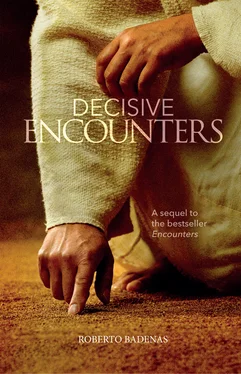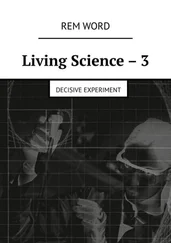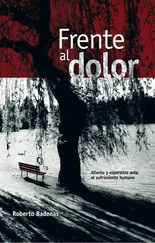8. “Only Jesus Christ, who bids us follow him, knows where the path will lead [. . .]. The following is the joy.” (Dietrich Bonhoeffer, The Cost of Discipleship. The Following, Salamanca: Sígueme, 2004, p. 12)
9. See Matthew 3, 7-10 and parallels.
10. In reality, Jesus threatens only those who dedicate themselves to threathening those who are weaker than they; that is, the Scribes and the Pharisees, who think that fear serves to obtain desired changes. But the threats achieve only external and fleeting changes. True transformation is born simultaneously from within and from above.
11. The term “disciple” describes a follower of a Teacher who is in the process of learning.
12. The Gospels say that Jesus had four brothers, named James, Joseph, Simon and Judas, in addition to several sisters (Matt. 13:55).
13. “The life of Jesus can be seen from the perspective of change rather than conservation.” He was the Reformer of reformers, and His lever for reform was the revelation of God’s plan for humanity.” (George Knight, Philosophy & Education, Miami: APIA, 2002, p. 255)
14. According to Matthew 28:20, the last words of Jesus will be: “And surely I am with you always, to the very end of the age.”
15. Paul of Tarsus, Jesus’ great disciple, made a living producing such tents (Acts 18:1-3).
16. This availability confirms that these disciples were young. Some of their reflections, like the one expressed in Matthew 19:10 “if this is the situation between a husband and wife, it is better not to marry.” It would imply, based on the use of the aorist tense, that they were still single. The fact that we later find the disciple Peter already married, does not mean that he was older, given that the recommended age for marriage by the rabbis was from 16 to 24. His impulse of wanting to walk on water (today we would say “surfing without a board”) is much easier to understand as a juvenile fit—which the Teacher does not care to indulge—than a mature decision of an adult, who would not have dared to have such a crazy idea (Matt. 14:28-33). More than three years later, when John and Peter compete by racing to see who arrives first at the tomb, John has the naive satisfaction of indicating that he won the race (John 20:3-8). If you bear in mind that in such society the act of adults running in public was frowned upon, this “feat” clearly appears as a juvenile thing.
17. The “tenth” hour is equivalent more or less to two hours before sunset (John 1:39).
18. The author of this account is John, one of the travelers, who would go on to become an apostle (John 1:35-42).
19. John 1:1-14.
20. Hence, the first activity of Jesus’ public ministry was camping with the young men . . .
21. “Every glance of the eye, every feature of the countenance, [. . .] expressive of unutterable love” (Ellen G. White, The Desire of Ages, p. 81). “God is love” John would write years later (1 John 4:8).
22. [Translated quote] Antonio Muñoz Molina, Sefarad, Madrid: Editorial Santillana, 2001, pp. 291-192.
23. John would sign his Gospel with the pseudonym of “the beloved disciple”or “the disciple whom Jesus loved” (John 21:20). “Even John, the beloved disciple — the one who most fully reflected the likeness of the Savior— did not naturally possess loveliness of character. He was not only self-assertive and ambitious for honor but impetuous and resentful under injuries. [. . .] The strength and patience, the power and tenderness, the majesty and meekness that he beheld in the daily life of the Son of God, filled his soul with admiration and love. Day by day his heart was drawn out toward Christ, until he lost sight of self in love for his Master. [. . .] The power of the love of Christ wrought a transformation of character.” (Ellen G. White, Steps to Christ, Madrid: Safeliz, 2018, p. 75)
2
The Invitation
The travelers arrive at Bethsaida with mixed feelings. On one hand, they are happy to return home; on the other, they find it difficult to say goodbye to the Teacher, who continues His route toward Galilee.1 Interacting with Him has been an unforgettable experience, which they would like to extend. Will they manage to get Him to stay with them, even if only for one more day?
The village receives them with its loose embrace, nestled between the lake and the stony hill, dotted with hamlets and small fields. Tender green sown fields stand out among the fallow land. Black cypresses, twisted carob and some pomegranate trees encircle the terraces. In the morning peace, the blows of the locals’ mattocks resonate crisp and deep against walls and cisterns, the cacophony of seagulls shaking in tempo.
Those on the way barely stop for an instant to drink from an old waterwheel in the first orchards. They are in a hurry to introduce the Teacher to their people.
The Galilean is an impassioned road companion, a free spirit. His new disciples are disoriented by the unpredictability of His actions and expressions. His personal way of teaching, in contrast to the Teachers from His land, is so open and new that each of His proposals seems to be a challenge, and even an act of protest. But for Him freedom is not the possibility of acting on a whim but the occasion of choosing the best.
The Teacher aspires to nothing less than changing the world, transforming people one by one, as attempting to produce a new type of human being.2 However, He is neither naive nor crazy: He is as realist as life itself. For that reason, He instilled His disoriented disciples, in addition to astonishment, with trust and respect.3
In every word He makes it clear that imparting lessons is not the same as being a Teacher. The Teachers of the law in His environment always want to teach; with Him, one always wants to learn.
It surprises them that He accepts followers as ill prepared as they are. He implies that, “in the soul of one who is ignorant there is always room for a great idea.”4 That is why He distrusts the arrogant scholars, who are so imbued with their own knowledge that they are incapable of learning anything new. He criticizes that, having the key of knowledge, able to open the gate of God’s kingdom, “You yourselves do not enter, nor will you let those enter who are trying to.” 5
From the beginning, He has made it very clear that He does not need to avail himself of locations reserved for lecturing sessions, neither to meet with God. He teaches them at any time and makes them feel close to heaven right where they are, whether on the road, under the palm trees of an orchard, among almond and olive trees, or at the very mountain.
On their way back to their homes, Andrew and John express an urgent desire to follow such a unique Teacher full time.
His school is one of free access, open to everyone. Without classrooms or schedules as in it you always learn and at any place . . . with no more manuals than divine revelation and the infinite universe. With no more exams and tests than those involved in existence. And without a graduation diploma, for in the school of life one never graduates.
The enthusiasm of these disciples is such that they do not cease to share their find with their families and friends.6 Influenced by the personality of the Teacher, aspiring to continue learning from Him, these restless, young men rejoice with what was discovered in their first lessons.7 Andrew transmits his joy to his brother Simon and introduces Him to Jesus. From one to another, they gradually pass on the news.
And that is how Jesus encounters Philip. Shortly after seeing him, with that glance that is much more far-reaching than the eyes, He tells him:
Follow Me.
Jesus appears not to see people for who they are, but for whom they can become.
The new disciple, dazzled by his new guide, runs in search of his friend Nathanael,8 to share with him the Joy of the discovery.9 With his heart pounding with excitement, he gives him the news:
Читать дальше












